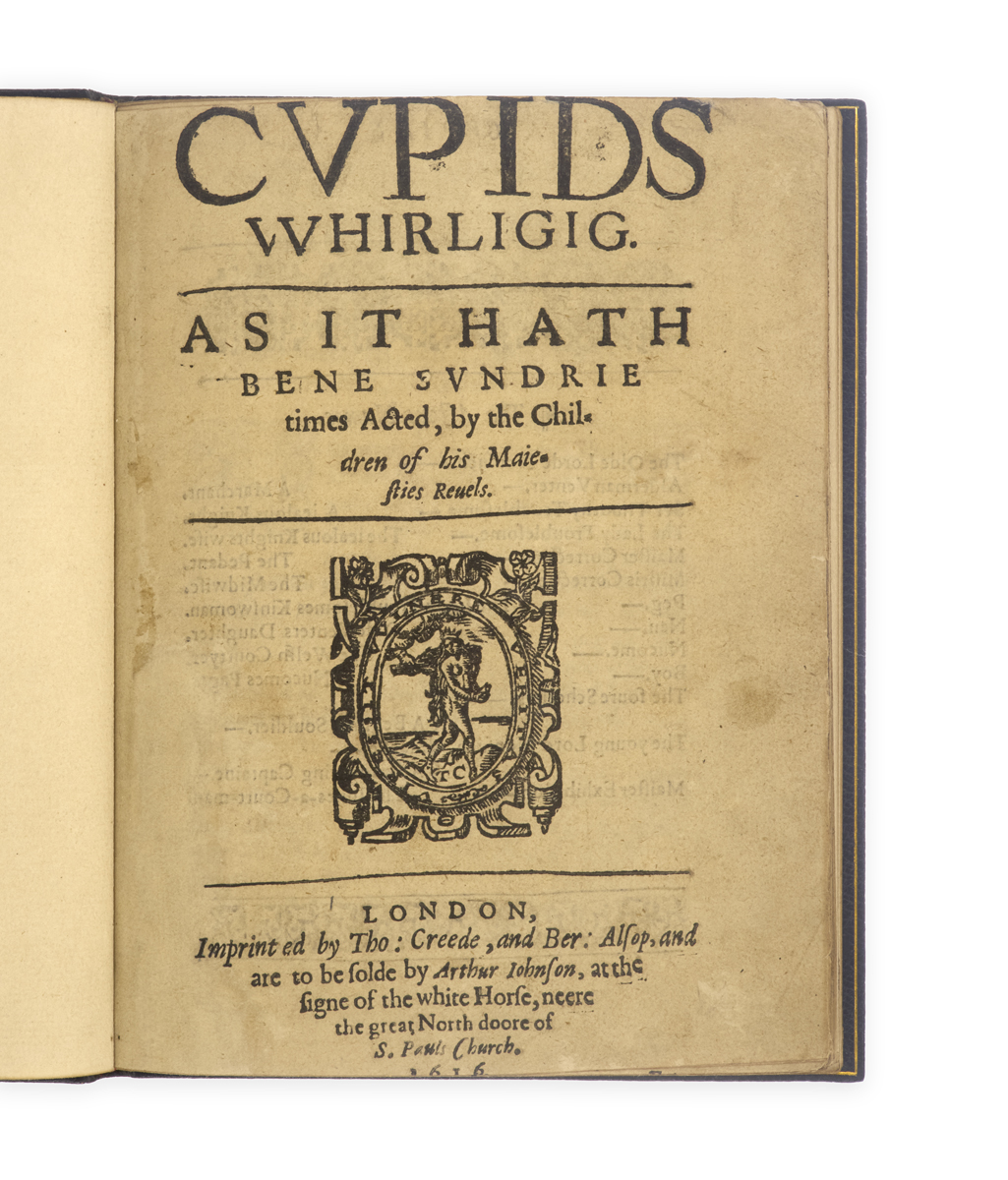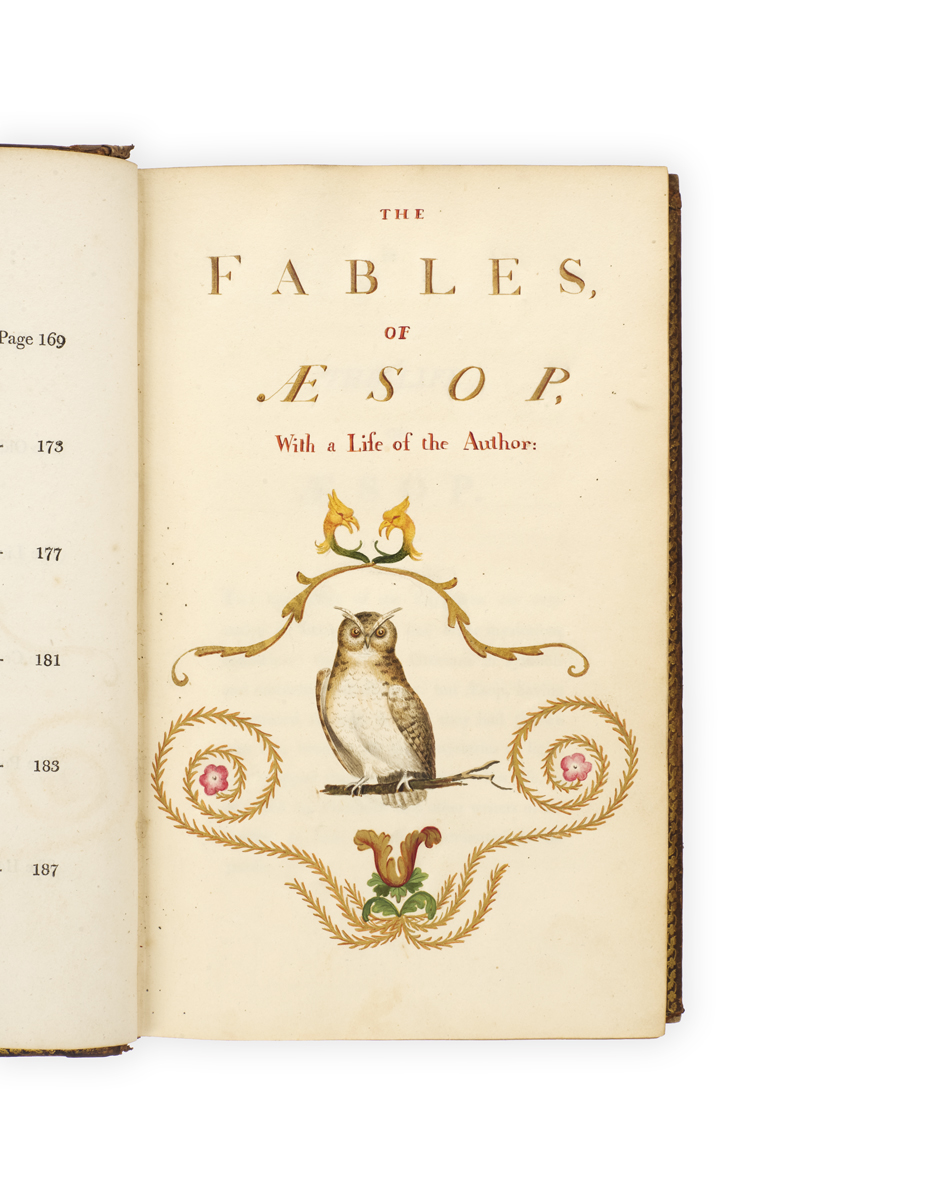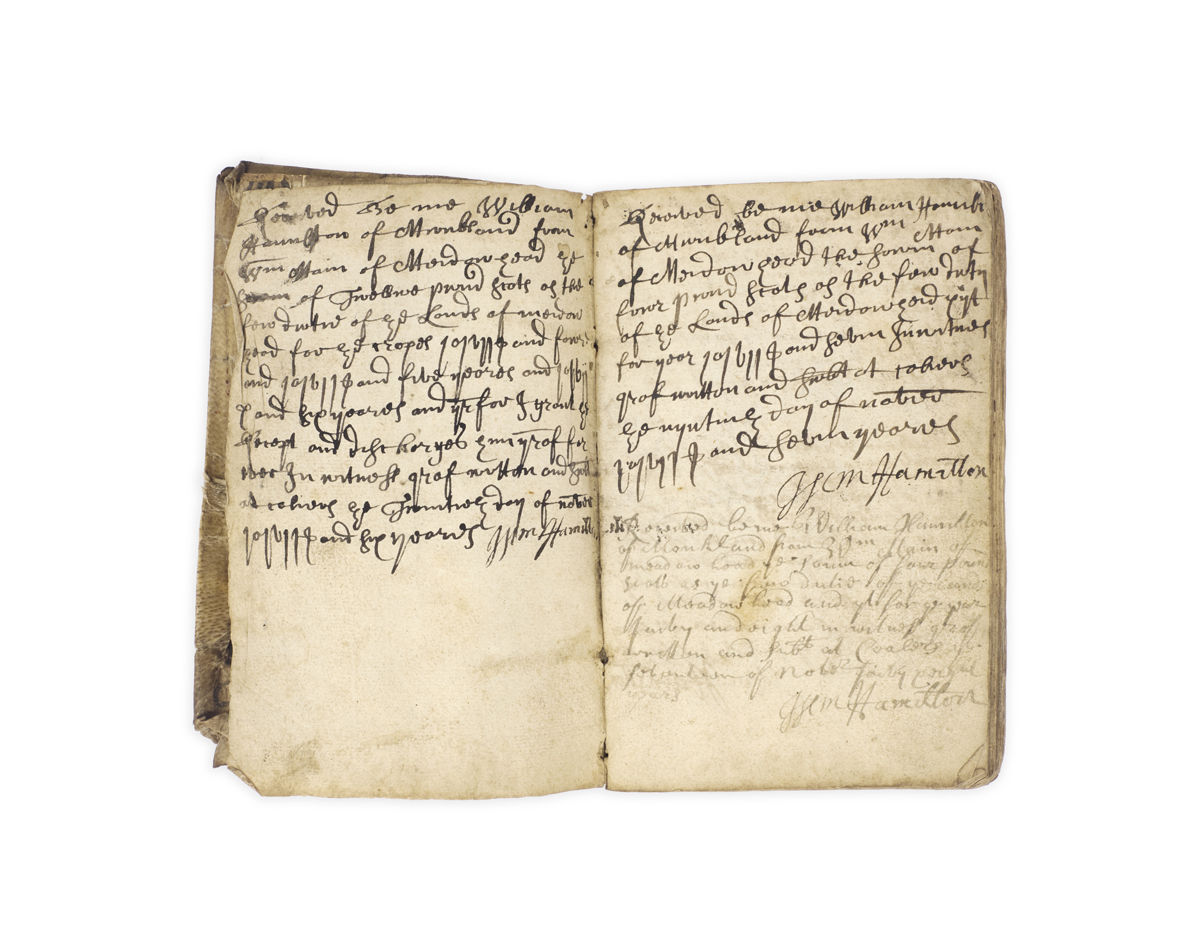
SHARPHAM, Edward.
Cupids whirligig. As it hath bene Sundrie times acted, by the Children of his Majesties Revels.
London, Imprinted by Tho: Creede, and Ber: Alsop, and are to be solde by Arthur Johnson … 1616.
Small 4to, pp. [80]; title-page slightly shaved, just touching the first word at the top, and slightly trimming the date at the bottom; a few leaves in the text shaved at the bottom, with the loss of an occasional catchword or signature mark; withal a very good copy in full dark blue crushed morocco, gilt, by Riviere; booklabel of Kenneth Rapoport.

Added to your basket:
Cupids whirligig. As it hath bene Sundrie times acted, by the Children of his Majesties Revels.
Third edition of an early Jacobean comedy based upon a tale in Boccaccio’s Decameron, with a contemporary London setting.
A satire, parodying Lyly and influenced by Marston, it is almost entirely in colloquial prose, with a few passages in verse, and was first performed, and printed, in 1607 – shortly afterwards Sharpham died of the plague.
The characters include Old Lord Nonsuch and Young Lord Nonsuch, Alderman Venter, Sir Timothy Troublesome and wife (and her kinswoman Peg), Master and Mistress Correction, Master Exhibition, a Welsh courtier named Nucome, and four scholars. Amusingly, the early eighteenth-century literary antiquary Thomas Coxeter once ascribed this play to Shakespeare, upon the authority of ‘an old bookseller’. Furnivall, in his Allusions to Shakespeare (1886), does refer to this play as illustrating passages in Romeo and Juliet. But Sharpham’s authorship is secure.
Sharpham (1576–1608), also wrote another play called The Fleire (1607), which was acted at Blackfriars in 1605–6, and on several other occasions, by the children of the revels (as was the present play). Schooled in Devon, he was admitted to the Middle Temple in 1594 but never kept chambers. He ‘must have associated with inns of court literary circles, but documentary evidence of his activities is lacking. Ben Jonson called Sharpham a “rogue” (Ben Jonson, 1.133), but he may still be the “E. S.” who wrote a commendatory poem for Jonson’s Volpone (1607)’ (ODNB). He was also probably the author of a ‘coney-catching’ tract printed in 1597 entitled The Discoverie of the Knights of the Poste.
This is a rare play in any form: this copy, last handled by us in 1997, is the only copy of any edition to have appeared at auction in the last sixty years. Of the first edition nine copies are known (one imperfect), of the second edition (1611) seven; and of the present printing there are eight copies in six locations: British Library (imperfect), Guildhall, Bodleian (3 copies, one imperfect), Folger, Boston Public Library, and Illinois; plus fragments at Huntington and the V&A.
STC 22382.

